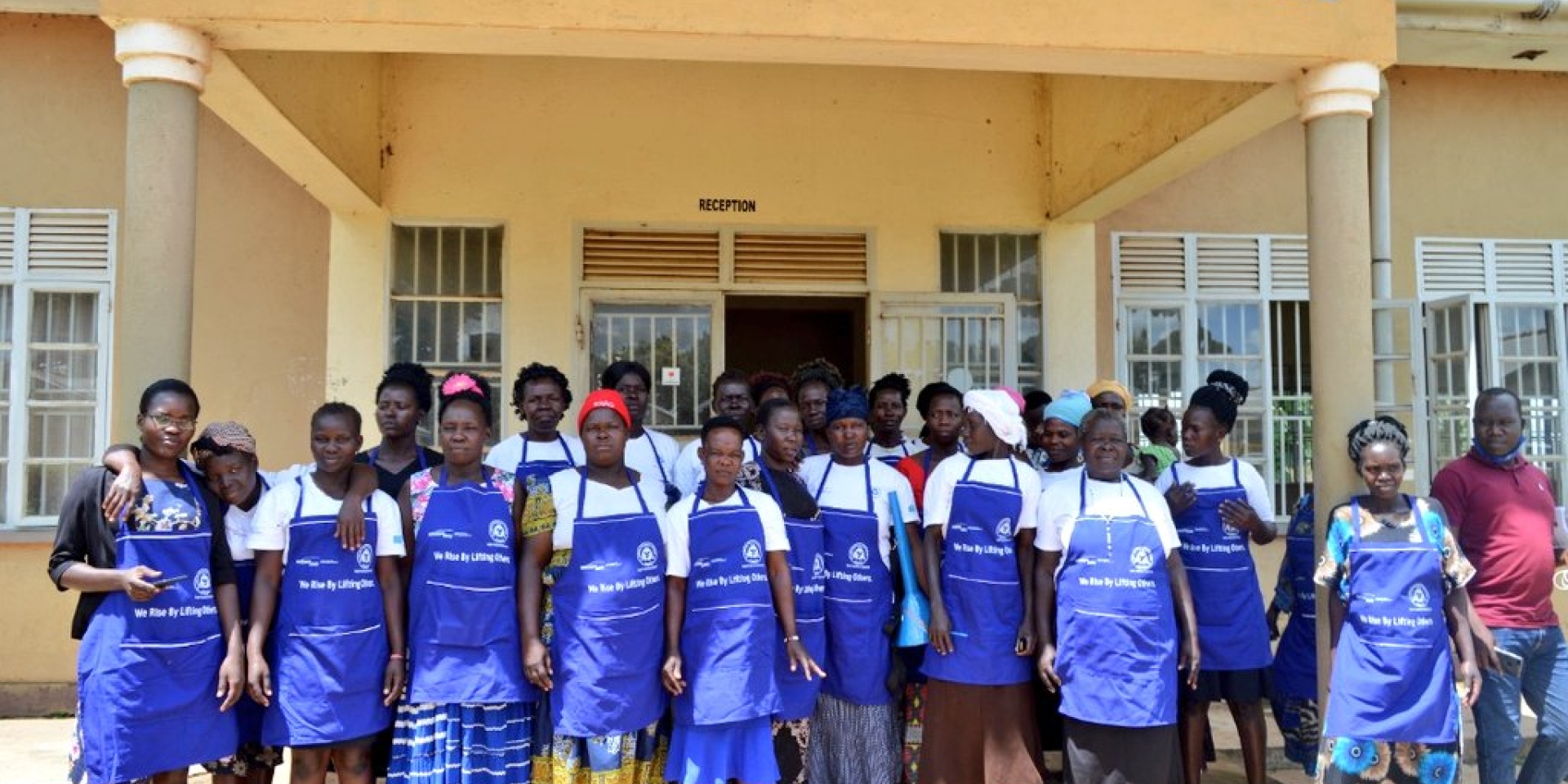
“As women, we now have a say on the market. Our voices are being heard,” Jenifer says confidently. She is one of the women at Kalerwe Market in Uganda's capital, Kampala, who have benefited from the “Strengthening the Rights of Market Women” project. Funded by DKA and ADA, and implemented by Uganda Women's Network (UWONET) the project is a sustainable success story:
In total, more than 1,100 women and almost 100 men benefited from the project's interventions. Women now have a greater voice in the four markets. Relations with the owners and operators of the markets have improved and problems can now be addressed in a solution-oriented way. Economically, women are benefiting from better access to credit and support programmes, while a culture of saving and efficient investment has emerged in the markets.
The bright colours of fresh mangoes, bananas and tomatoes brighten the market. As lorries deliver the day's produce, a group of vendors loudly haggles over the latest prices. The vibrancy of a market can be an impressive attraction. But there is also a dark side behind the scenes of the market live. Every market has its own rules. However, some benefit from them more than others. Women are particularly disadvantaged, even though they are clearly in the majority at the market. They are the ones who spend hours every day selling their products and doing physically demanding work.
A status quo that was to be changed for the better with project start in January 2019. The market women were to be sensitised on their given rights and empowered to claim them. At the same time, they should get in the position of realising the economic potential of what they have to offer. The market should become a place of economic activity without gender-discrimination. This might sound simple in theory, but in practice it requires a holistic approach and, above all, perseverance.
The project involved women from four markets in Kampala and Amuru, a smaller town in the north of the country. Even if not all the women in a market can benefit directly from a project's activities, the overall positive impact is much greater. This is because it is the already empowered women who go on to support others. By doing so, sustainability beyond the project is achieved. The project activities were defined in close consultation between the funding and implementing organisations and consisted mainly of thematic training and mentoring. For example, the participating women were made aware of how and in what form market grievances can be effectively addressed, what rights they have and how they can effectively stand up for them. In business-related sessions, the women worked together to develop strategies to increase the profits of their market stalls at the end of the day. This is an important contribution to raising living standards - in many cases the generated income must be sufficient to support several family members. Preventing and responding to violence against women was addressed as a cross-cutting issue in the training sessions: Markets are a potential source of violence in all forms against women. However, the success of the project is by no means a one-way street. The active involvement of relevant stakeholders and decision-makers is essential to achieve sustainable improvements. Through a national colloquium, market dialogues or specific advocacy meetings, for example, representatives of the city administration, the police, politicians or market owners were involved.
Although external factors such as increased commodity prices and the general cost of living constantly affected the course of the project, the efforts of all those involved in the project paid off.
Economically, women are benefiting from better access to credit and support programmes, while a culture of saving and efficient investment has emerged in the markets.
“Thanks to mentoring, I now earn almost four times as much as I did a few years ago. I used the profits to buy two school canteens, which I now successfully run,” says Sharifa. Smiling, she glances around Kalerwe market, which now shines brighter than it did a few years ago, thanks to greater equality of opportunities.
The project was funded by ADA and DKA from 2019-2022